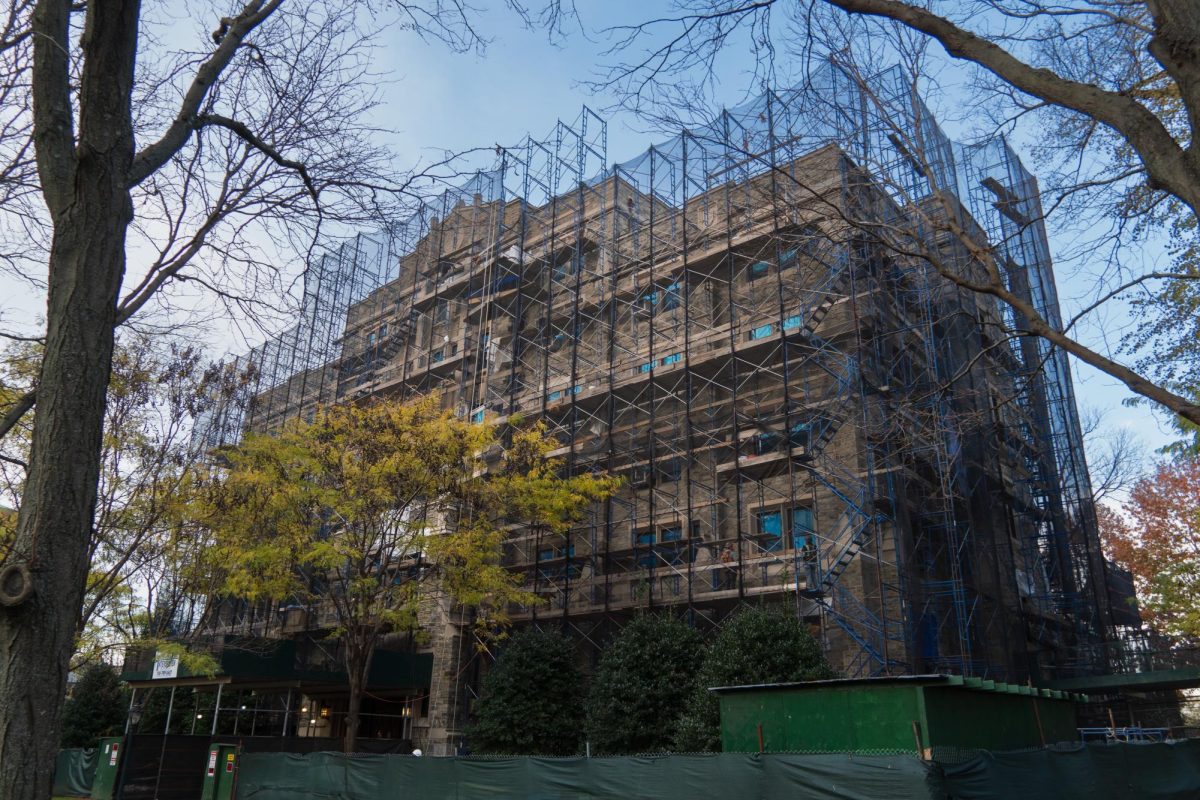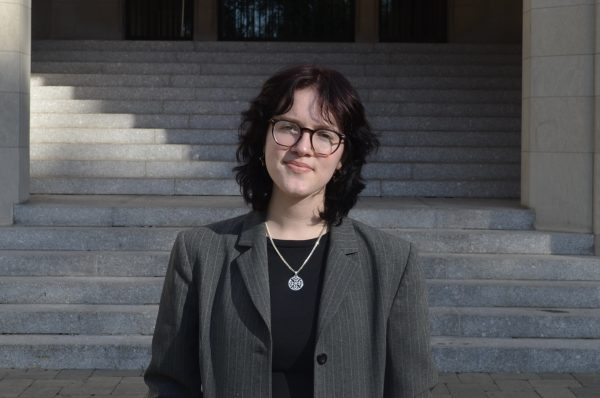As 2024 approaches, students may notice some scaffolding around campus coming down and more going up. Several new projects are coming to Rose Hill as the semester winds down.
Currently, both Faculty Memorial Hall and Loyola Hall are having their facades renovated. Both buildings have concrete surrounds on the windows that crack over time.
“We were starting to see that some of the concrete was falling, so we built a bridge and started looking at all the window surrounds on the front of the building,” said John Puglisi, associate vice president for facilities management. “Some of the scaffolding you’ll see coming down in the next two weeks and when students come back in January should all be gone.”
The largest project currently taking place is the McShane Marketplace renovation, which aims to be completed next October. Currently the university is working on destination dining, which provides semi-temporary dining halls and food trucks across campus. The most significant impact of the construction is its cost. The school has received some grants with the intention of taking the load off tuition.
“The university’s finances are very heavily based on tuition, so anything that we can do to try to combat tuition creep is important,” said Puglisi. “Grant writing and donations are taking a lot of our effort.”
The grants are not only for the campus center. The school has received one from renovations to the University Church, which has water infiltration issues. The plaster in the ceiling is filling with water, swelling and then drying. As this repeats, the plaster starts to flake and fall.
Protection will cover the first few rows of pews, but services will continue as usual during the renovation. Due to the age of the church, the renovation is slightly more complicated and requires experts on stonemasonry.
“We’re not quite sure how long [the renovation] will last. We’re trying to get out of there by wedding season,” said Puglisi.
Not only are buildings going through updates this year, but the boilers and heating on campus are being renovated. In 2019, the campus had a boiler failure and had to mobilize temporary boilers.
These boilers serve several buildings on campus: Duane Library, Martyrs’ Court, Alpha House and Rodrigue’s Coffee House. There is a system of pipes that transports the heat from the central boiler to the buildings that are warmed by it. The system is old – installed in 1968 – and is less efficient than many new heating systems.
“We are downsizing it a little bit so that we are reducing our greenhouse footprint, as well as decentralizing and abandoning some of the distribution system,” said Puglisi.
The university is focusing on using smaller, more efficient equipment to assist with its decarbonization efforts and attempts to consume less natural gas. This upcoming winter there will be a mix of new and old equipment, just in case the new equipment isn’t prepared for the cold.
The university is also considering using geothermal energy, which uses the temperature of the ground to heat and cool buildings.
“I want to do proof of concept. We have a couple of alternative energy-generating facilities right now,” said Puglisi. These facilities include solar panels on top of the garage and a fuel cell behind Walsh Library.
Implementing these new systems means any new facilities will be incorporated into them.
One of these facilities is a new STEM lab for the physics, math, computer science and biology departments.
“That project has been kicked around for the better part of two decades,” said Puglisi, “and it’s in a very interesting stage right now. We just approved a programming stacking study for it.”
There is no concrete plan for the facility; it is likely to be in a new building, though there has yet to be a decision on where that building will be. The facility will be undergraduate-focused and prioritize research.
The last of the projects coming to Fordham in the next couple of months are some updates to dorms. Specifically, water fountains will be added to all dorms, including water bottle fillers. Many students in dorms such as Martyrs’ only have access to their sinks for water.
“Last year when I was in a freshman dorm I felt like I had to go through many difficult obstacles to just get water,” said Cadence Wahl, FCRH ’26, “Especially because they don’t purify the taps in the bathroom.”
Alongside the ongoing lounge update program, the university is also looking into adding air conditioning to Alumni Court South and Loschert Hall in the most energy-efficient way possible.
“I’m happy to do that stuff. That’s a real quality of life thing that’s easy to do,” said Puglisi.








































































































































































































